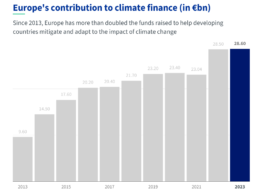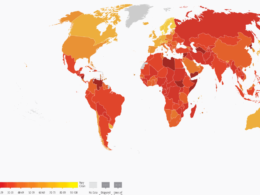IBM’s inaugural State of Sustainability Readiness Report 2024 shows that 88% of global business leaders intend to increase IT investment for sustainability initiatives over the next year, yet a substantial gap remains between sustainability ambitions and concrete action. The report, based on a survey conducted by Morning Consult across 15 industries and nine countries, reveals that while business leaders widely recognise the role of technology in sustainability, many are not yet implementing the necessary tools, especially AI, to meet their goals.
The survey, which included responses from 2,790 leaders, shows that over half of business leaders view IT investment in sustainability as a growth opportunity rather than a cost. However, 56% of organisations have yet to integrate AI into their sustainability efforts, despite 90% of respondents acknowledging AI’s potential to help achieve sustainability goals. Financial planning is cited as the primary obstacle, with nearly half of the sustainability IT investments characterised as “one-offs” rather than built into a recurring budget.
The report highlights a growing trend toward optimising AI for sustainability, recommending that companies consider energy-efficient processors, open-source collaborations, and optimised data processing to reduce the environmental footprint of AI. However, finding skilled AI talent remains a significant hurdle, ranking among the top three sustainability challenges.
Despite widespread recognition of AI’s value, leaders still face challenges in measuring sustainability. Resource efficiency, renewable energy consumption, total energy use, and recycling rates are the top KPIs identified by surveyed organisations, aligning closely with IBM’s own metrics, such as megawatt-hour consumption and waste reduction. However, half of the leaders reported that their data to measure these KPIs is insufficient, complicating their ability to track and report sustainability progress accurately.
The report also highlights a perceptual divide between executive leadership and lower-level decision-makers on sustainability. While 67% of C-suite executives view their climate resiliency efforts as proactive, only 56% of directors and VPs share this confidence. This disconnects topics such as financial and infrastructure risks associated with climate change.
In light of these findings, IBM’s report offers several recommendations to advance sustainability efforts. It suggests that organisations invest in AI solutions tailored to sustainability, such as generative AI for carbon reduction insights, and leverage data to bridge perception gaps within the company. By using data analysis and reporting tools, leaders can uncover blind spots and align sustainability goals across organisational levels.
Christina Shim, IBM’s Chief Sustainability Officer commented, “Businesses see huge potential for AI to boost both their sustainability efforts and their bottom line, and it is exciting to see those incentives aligned. Leaders should stay thoughtful about minimising environmental impacts while adopting AI, but the data shows a lot of opportunity for progress on both sustainability and costs.”






















